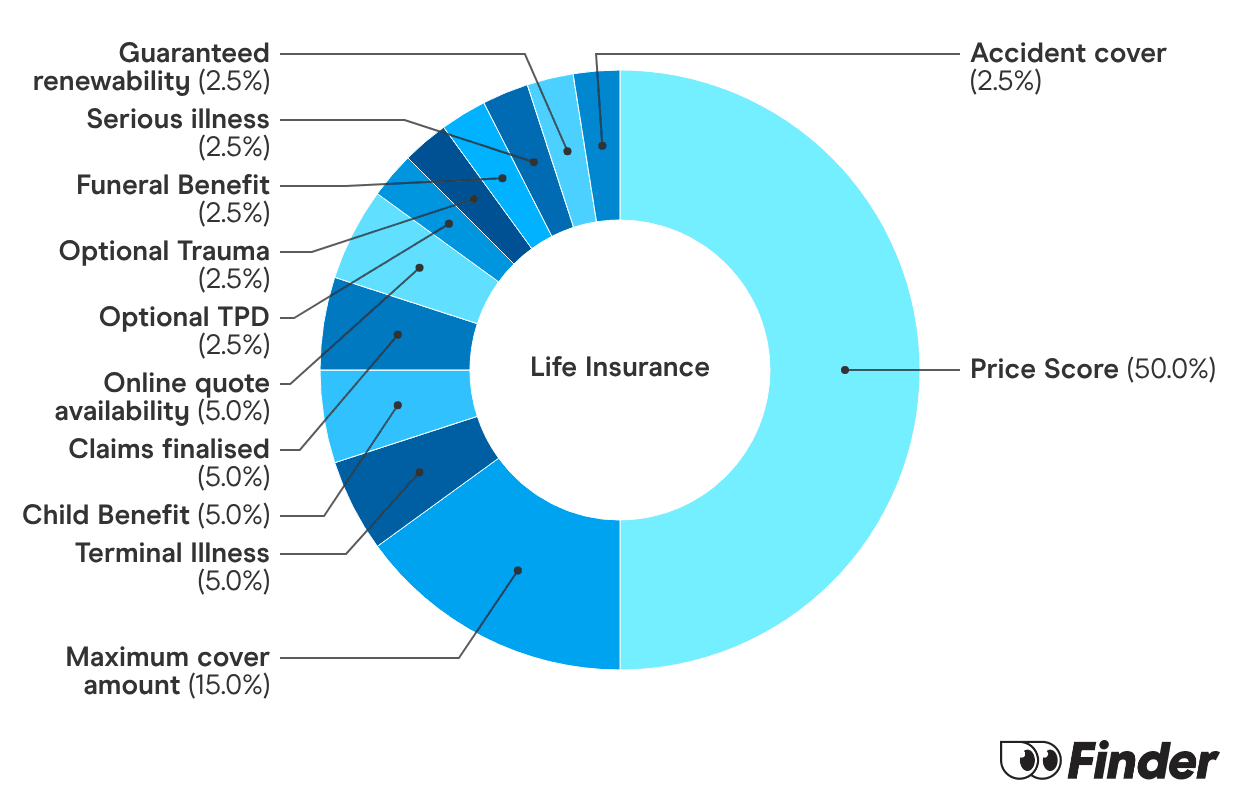Key takeaways
- Seniors can get life insurance, but the options may become limited with age.
- Most life cover policies will have a maximum entry age of 60-79, making it hard for seniors over 80 to find cover.
- Life insurance premiums typically increase with age due to a higher risk of making a claim.
Can senior Australians take out life insurance?
If you're an Australian senior between 60 and 74 years old, Life insurance is available as long as you meet the basic eligibility criteria of most policies. However, it may be more expensive, and options can be limited as you age.
Most life insurance policies have a maximum age for new applicants, which is usually around 67 to 74 years. If you're older than 74, finding cover can be quite difficult, and we haven't found any Australian providers who accept new applications aged 80 and over.
Generally, the older you are, the higher your premium will be. This is simply because you're statistically higher to make a claim as you age, and insurers factor this into how your life insurance premiums are priced.
Am I eligible for life insurance?
Eligibility for life insurance will vary from provider to provider, but seniors can generally qualify for life insurance in Australia if they meet these criteria:
- Aged under 74
- Are a member of a superfund
- Australian resident or citizen
In our experience researching Australian insurers, we found that seniors under the age of 74 can qualify for several types of insurance, including:
- Life insurance (also known as life cover or death cover): Provides a payout to you or a beneficiary upon death or a terminal illness diagnosis.
- Income protection insurance: Replaces lost income due to a disability or illness that prevents you from working.
- Trauma insurance: Pays you a lump sum if you are diagnosed with or experience a serious illness or injury.
- Total and permanent disability (TPD) insurance: Pays you a lump sum if you become totally and permanently disabled because of an illness or injury.
- Funeral insurance: Provides you or a beneficiary a lump sum payment to pay for funeral expenses when you pass away.
Are pre-existing conditions covered with life insurance?
You can still get life insurance with a pre-existing medical condition, but how it affects your policy is up to the individual insurer. Your application will consider your medical history, and if a pre-existing condition increases your risk of making a claim, here's what could happen:
- A loading: You'll be covered for the pre-existing condition, but your premiums will increase.
- An exclusion: Your application is approved, but you won't be able to make a claim for that specific condition.
- A denial: You're refused cover, and you'll either have to reapply or find another life insurance provider.
Here are some common pre-existing conditions that insurers will consider when you apply for life insurance:
- Heart disease
- High blood pressure
- Cancer
- Diabetes type I and II
- Kidney or liver disease
- Hepatitis
- Asthma
- Anxiety
Do I need life insurance after I retire?
It depends on your personal situation. Life insurance can provide financial security for you and your family if something unexpected happens, but it can become increasingly expensive as you age. It's important to weigh your ability to pay for life insurance with your current and future responsibilities, especially with the reduction in income when you retire.
It can make sense to take out life insurance to help your loved ones pay for any expenses or debts they might be left with if you happen to pass away. If your household finances are healthy, with minimal debt and no financial dependents, or if you have enough assets to cover any expenses that come up, you might not need life insurance.
Also, check if you have any life insurance cover through your superannuation. Many superfunds will have some level of life cover available to members which is often cheaper than buying life insurance separately. Just remember, though, the level of cover you get is usually limited and won't be tailored to your needs.
Does life insurance expire after a certain age?
Many life insurance policies will have an expiry age. Once you turn a certain age, your policy will automatically end, and your provider will no longer provide you or a beneficiary benefits if you pass away or become terminally ill. For most policies, this is around 99 years old. TPD often expires around 65 years old, while trauma cover expires around 70 years old.
It's important to know that these are just general observations from policies we've found. The expiry age of a particular policy will always depend on the insurance provider and type of policy. Always read the product disclosure statement (PDS).
Will being older affect the cost of my life insurance premium?
Like most insurance policies, life insurance tends to be pricier as you get older. This is because insurers increase premiums to reflect your higher risk of making a claim. From what we've seen of the cost of life insurance in 2024, we found that a 55 year old's average monthly premium was five times that of a 25 year old for the same level of cover.
Whether or not your premiums increase once you've bought life insurance will depend on how your premiums are structured. Many life insurers offer the option of 'stepped' or 'level' premiums. Stepped premiums increase each year as you age, while level premiums stay the same throughout the life of your policy.
While age is an important factor for insurers, it's not the only thing that will affect your premium. Each insurer sets its own guidelines and criteria for assessing risk and pricing premiums, so be sure to fully understand what will impact the cost of your life insurance by checking their website or PDS.
Compare life insurance policies
Compare other products
We currently don't have that product, but here are others to consider:
How we picked theseFinder Score - Life Insurance
Life Insurance is a little complicated and a lot overwhelming. That's why we made the Finder Score, to make it easier to compare Life Insurance products against each other. Our experts analysed over 30 products and gave each one a score out of 10.
But a higher score doesn't always mean a product is better for you. Your situation is unique, so your policy choice will be too. Don't think of Finder Score as the final word, but as a good place to start your life insurance comparison.

